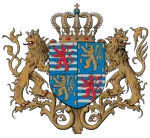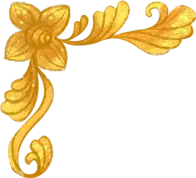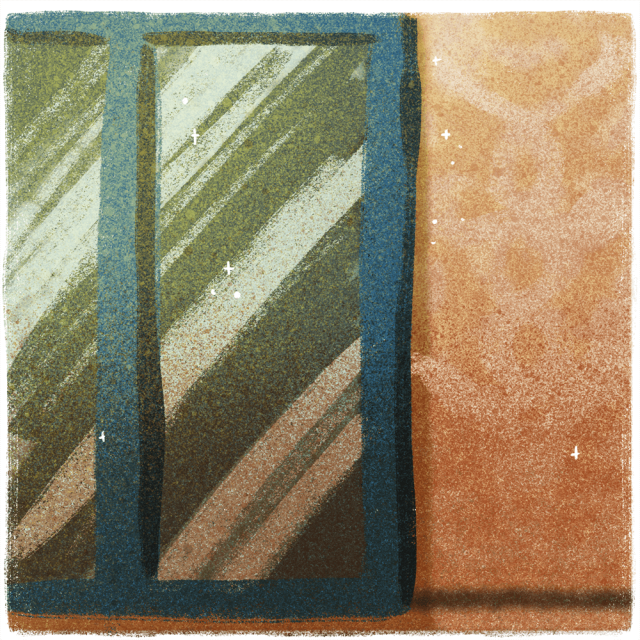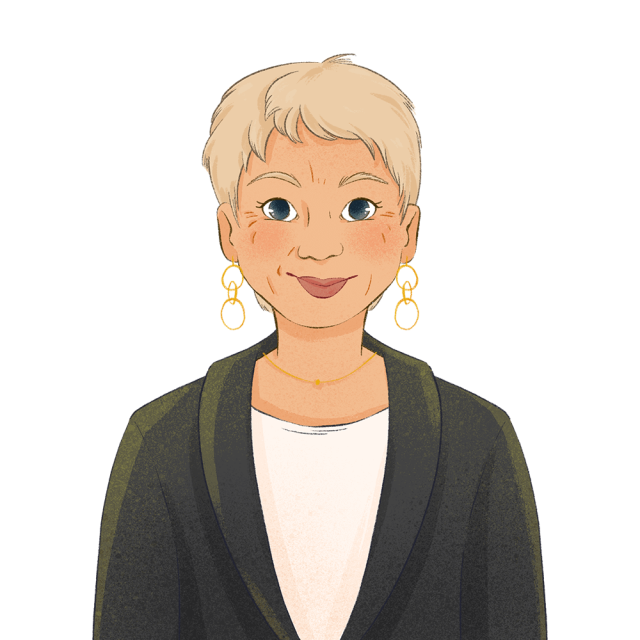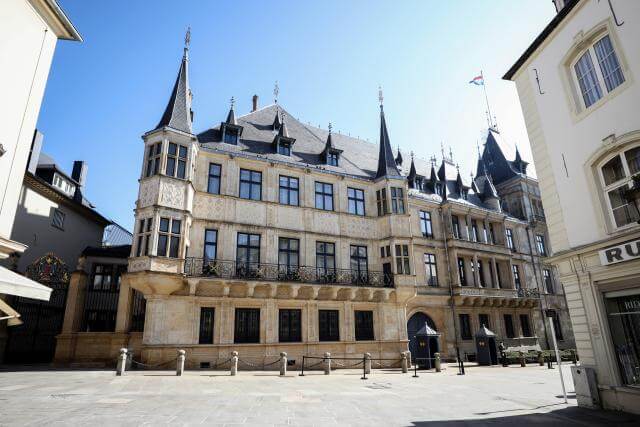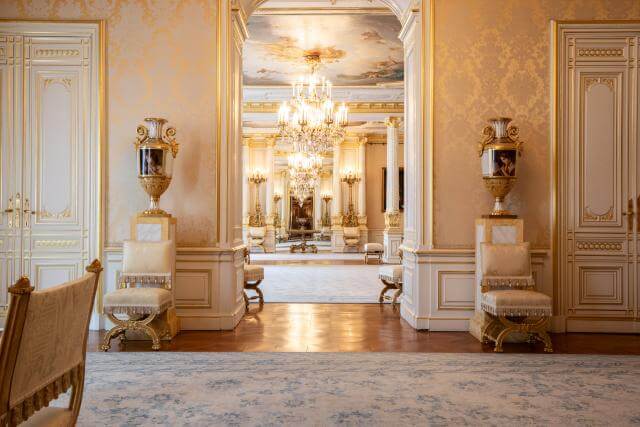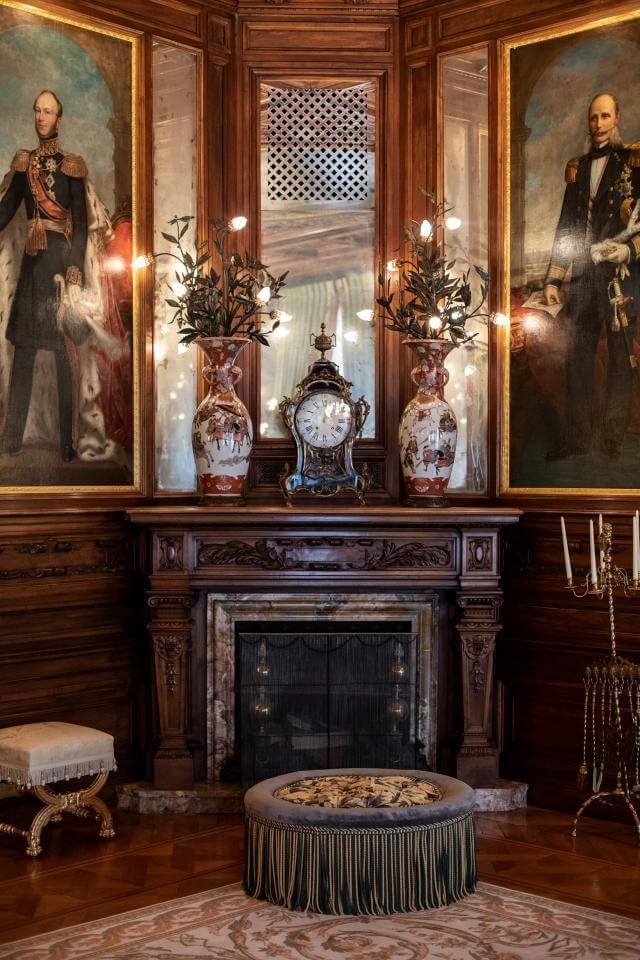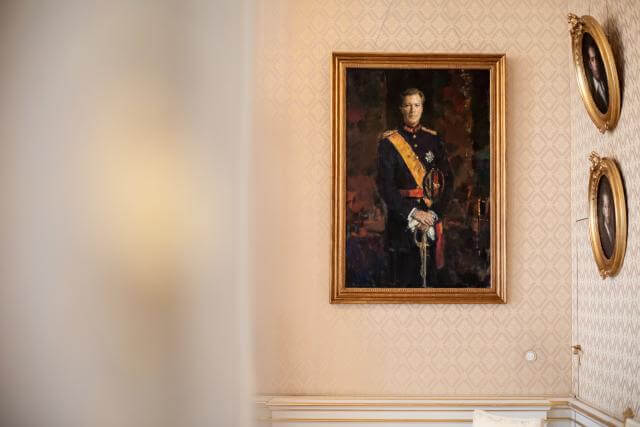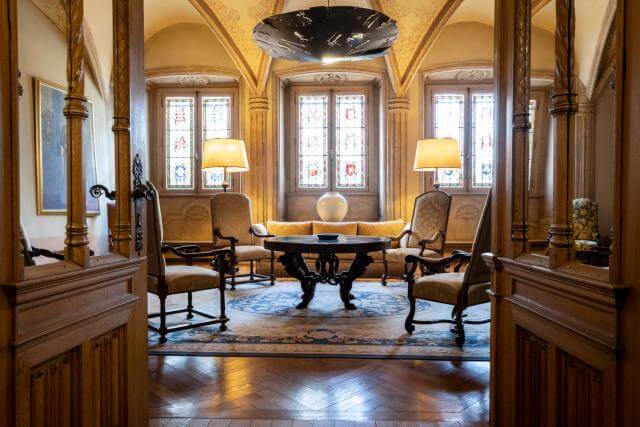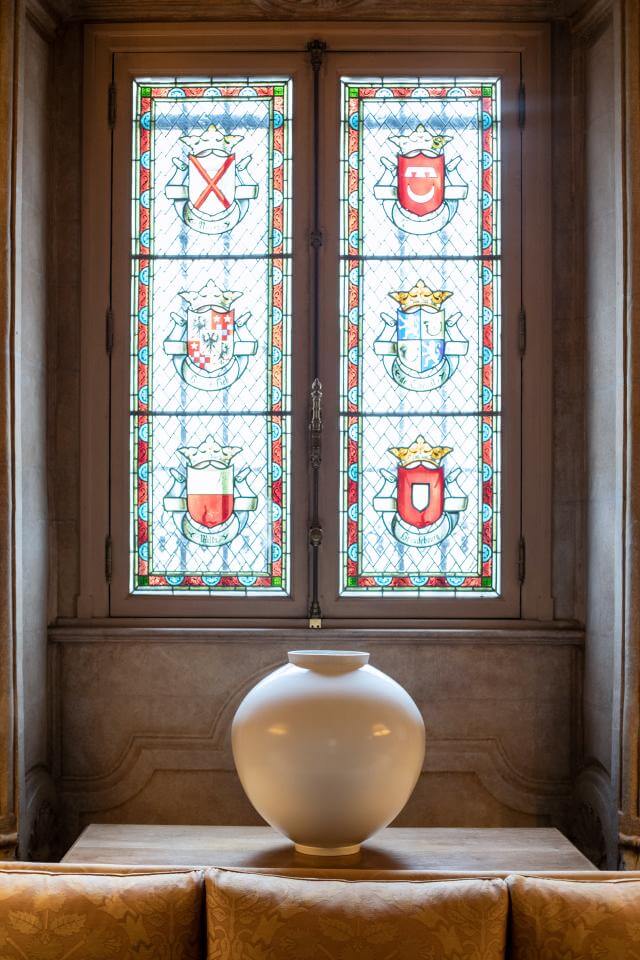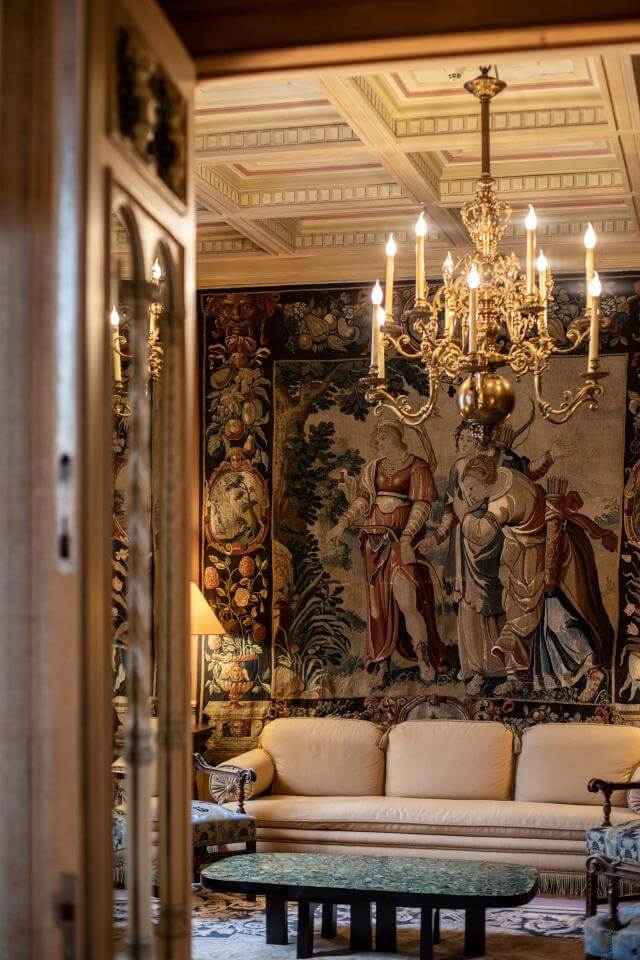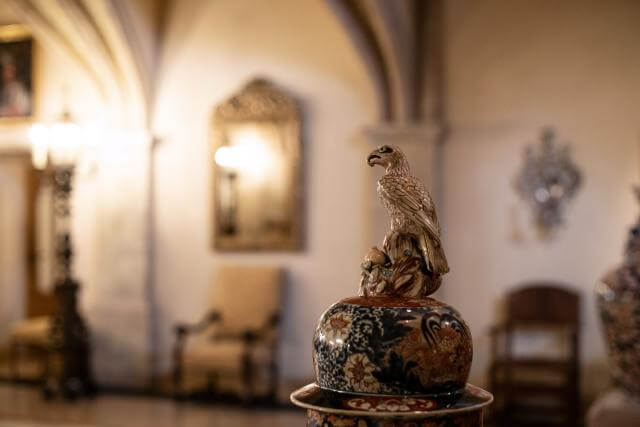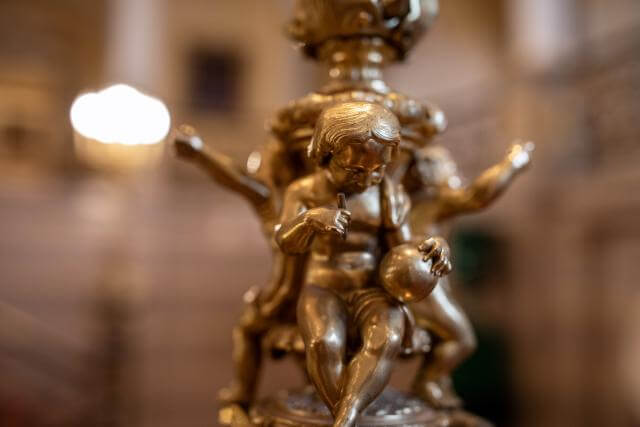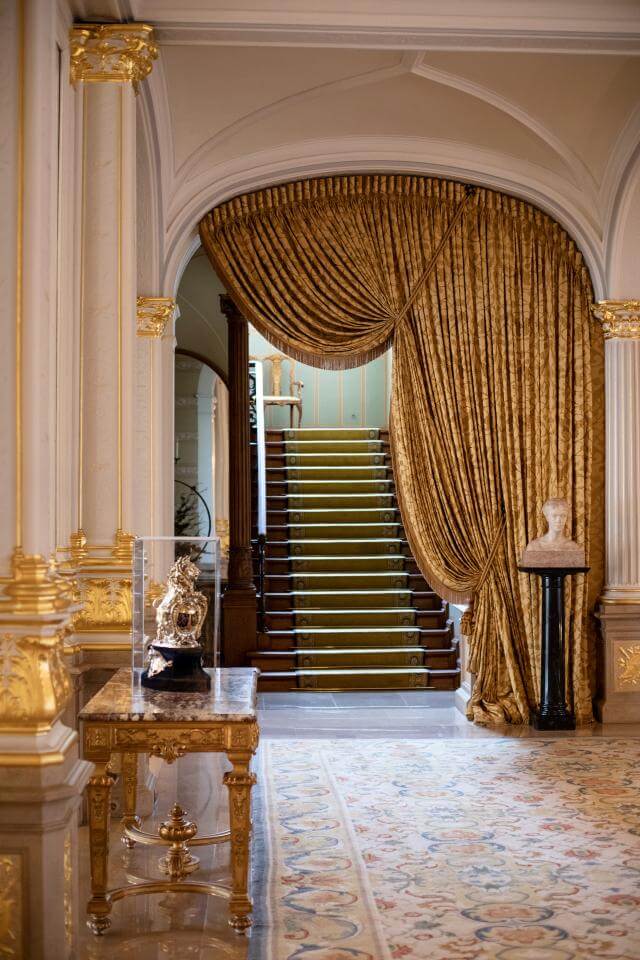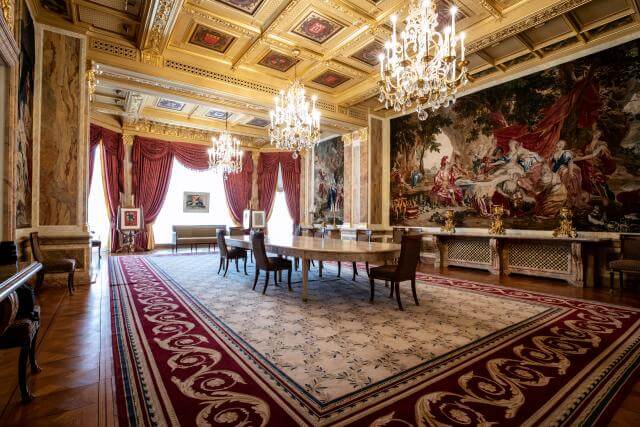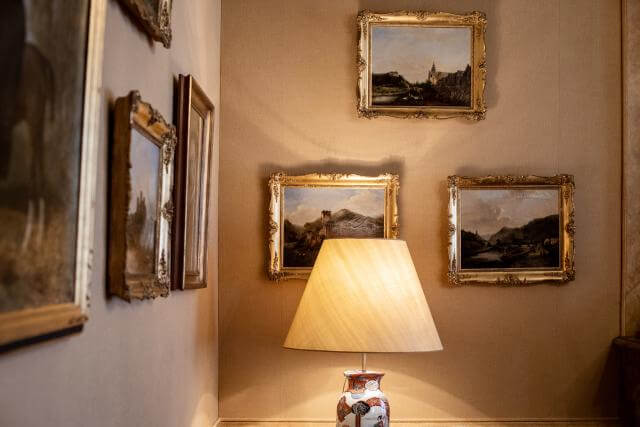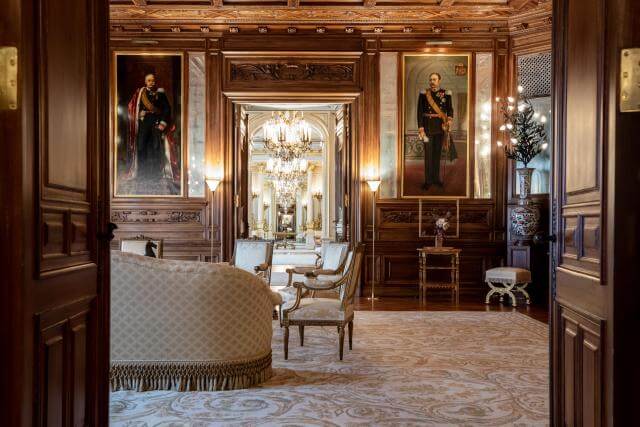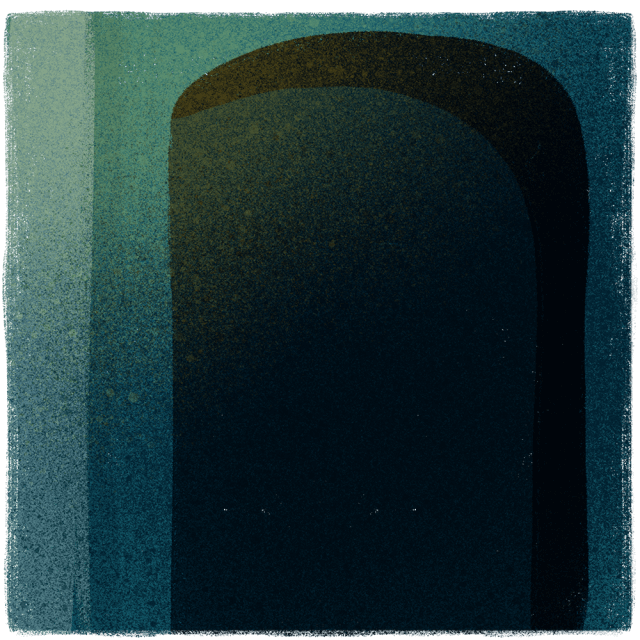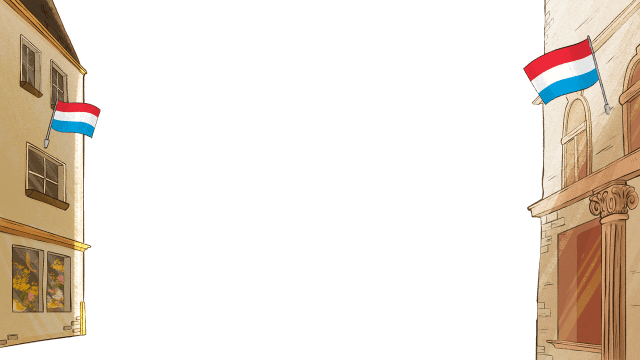
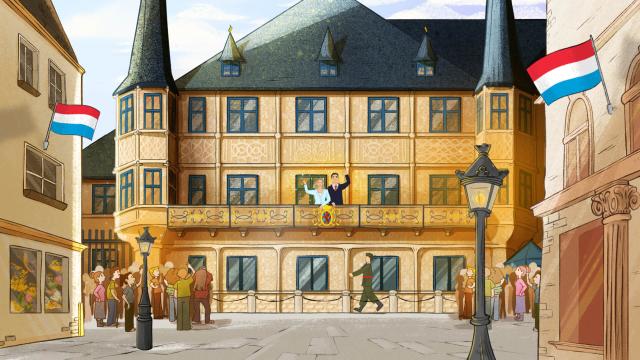
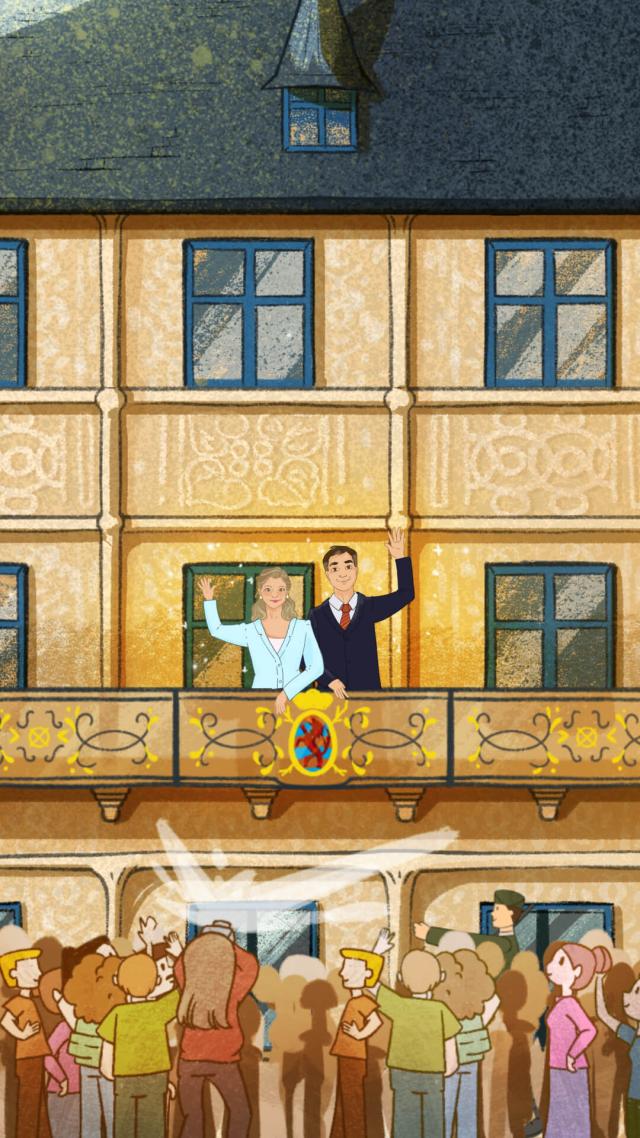
Grand Ducal Palace
Welcome to The Palace
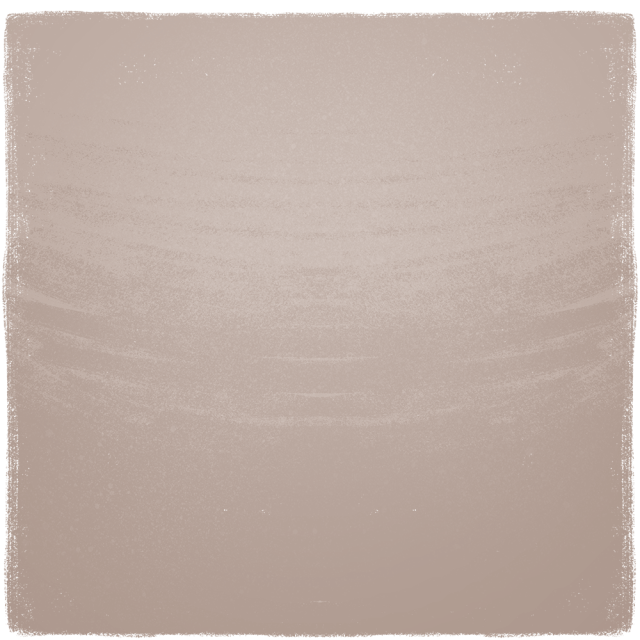

Welcome to The Grand Ducal Palace in Luxembourg City. I work here, at the Palace, and receive my visitors here, too: members of the Government, Heads of State, ambassadors, VIPs and citizens. On 3 October, my father, Grand Duke Henri, abdicated at the Palace. Did you know that the Palace is open to visitors in the summer? No? Then I invite you to come and visit it.
The Grand Duke
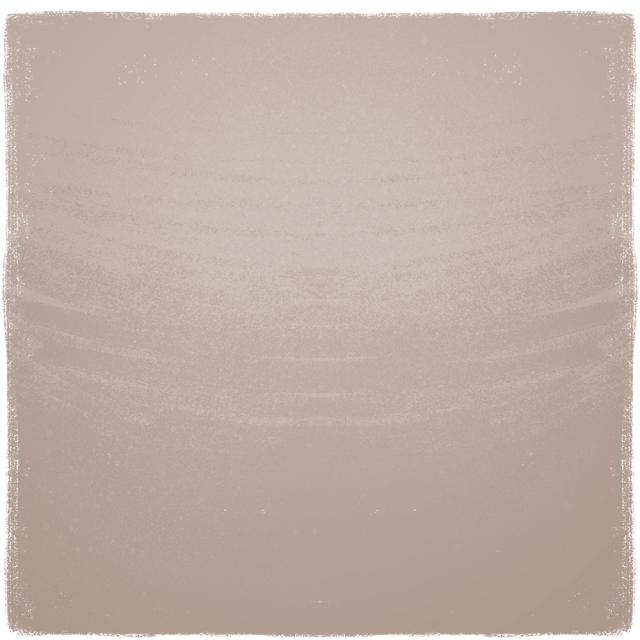

Moien! Welcome to the Palace. The Palace is the symbol of the Monarchy in Luxembourg. We receive important guests here. During State visits, official dinners are held here. We also hold our working meetings here with organisations and members of the public who request them. The Palace is magnificent and contributes to the positive image of our country.
The Grand Duchess
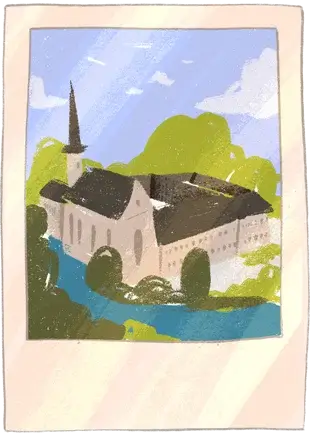

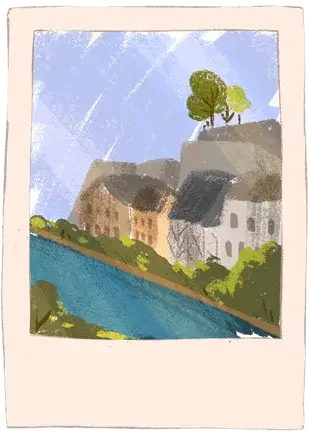
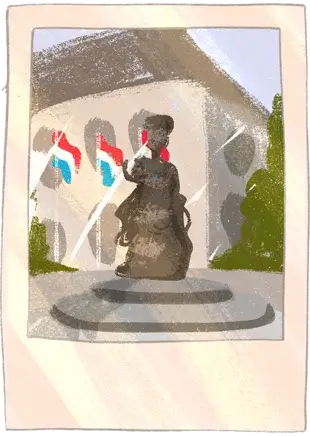

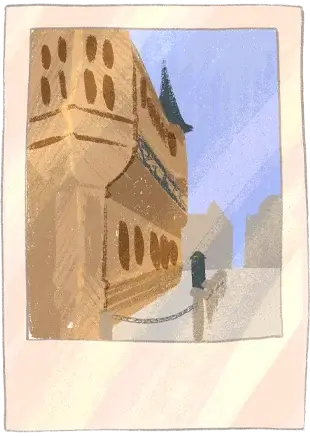
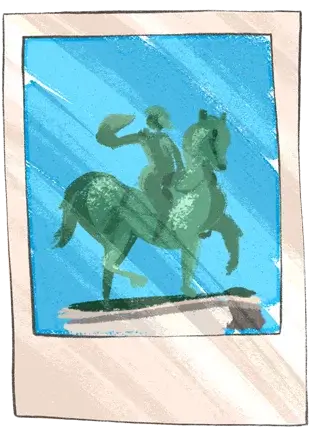
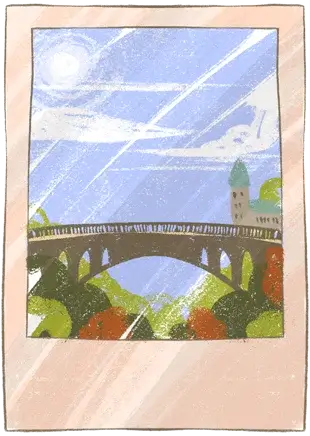


The Grand Duchy of Luxembourg is a constitutional monarchy
Those two words sound very complicated, don’t they! Do you know what they mean?
The answer!
A monarchy is a country headed by a monarch. For example, a king, like in Belgium or a queen, like in Denmark. Our monarch is the Grand Duke in Luxembourg. Do you know of any other monarchs?
The monarchy is hereditary, meaning that when the king, queen or Grand Duke dies or retires, they are succeeded by their son or daughter.
But even if he is the head of his country, a king or grand duke cannot decide everything on his own. It's the Constitution that says what he can and cannot do. The Constitution is the most important law of a country, the one that stands above all others. The monarch must obey the Constitution.
In constitutional monarchies such as Luxembourg, the monarch appoints the Prime Minister that Parliament proposes.
Who does what in a constitutional monarchy?
Luxembourg is organised according to the principle of the separation of powers. There are three powers: legislative, executive and judicial.
The legislative power, which makes the laws, is exercised by the Chamber of Deputies, which is chosen by the people during elections. It is the Deputies who pass the laws.
The executive power, according to the Constitution, is held by the Grand Duke. It is he who, as Head of State, 'executes' the laws and enforces them. In practical terms, it is the Government that takes the necessary decisions and initiatives, which the Grand Duke signs to ratify. The Grand Duke's duties also include representing the Grand Duchy internationally.
The judicial power is made up of the courts and tribunals, which are responsible for enforcing laws and regulations. They are independent and neutral. The Constitutional Court verifies whether laws comply with the Constitution.
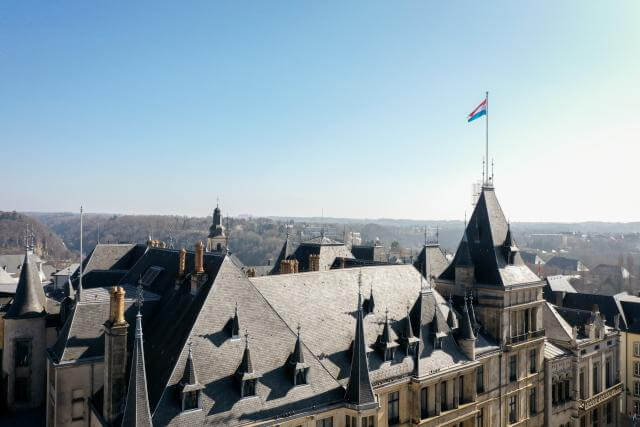
When the flag flies from the Palace in the city, it means that the Grand Duke is there to work.


Why is there a Grand Duke and not a King?
What an excellent question! It's a very old story… We'll tell you all about it!
The answer!
The Grand Duchy of Luxembourg is a monarchy, but it is headed by a Grand Duke and not a King, as in Belgium or the United Kingdom. It's a long story that goes back more than two centuries.
At the time, Napoleon, Emperor of the French, had waged war on almost all of Europe. After defeating him at Waterloo, the leaders of the European countries met in Vienna and to guarantee peace, they redrew the borders of their countries by creating a new one: the Kingdom of the Netherlands. The Duchy of Luxembourg, which became a Grand Duchy at this time, was part of it, as was Belgium.
But neither Belgium nor Luxembourg was of much interest to the King of the Netherlands, William I. In 1830, the Belgians and Luxembourgers were no longer in agreement with what had been decided. Belgium became a kingdom, but Luxembourg kept William I as monarch. It was not until 1890 and the death of his grandson, William III, that they separated: the Netherlands went to his eldest daughter, Wilhelmine, and the Grand Duchy to Adolphe, a distant cousin, because Luxembourg law did not yet allow a woman to inherit the crown. That's why the Head of State is a Grand Duke.
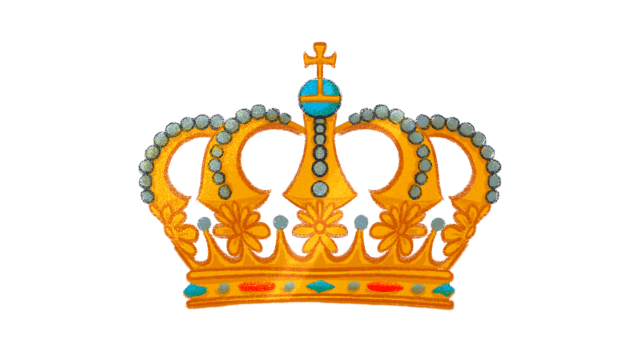








Succession to the throne
Grand Duke Guillaume succeeded his father on 3 October 2025. But how does succession work?
The answer!
Previously, a woman could only become Grand Duchess if she had no brothers or cousins. In 2011, Grand Duke Henri, who was very committed to gender equality, suggested that the first child, whether a girl or a boy, should become Head of State.
Grand Duke Henri retired (it is also called an abdication) on 3 October 2025 and handed over power to his eldest son, Guillaume. The one who held the title of Hereditary Grand Duke thus became Grand Duke by taking an oath before the Chamber of Deputies.
When he in turn is no longer Grand Duke, Prince Charles, his first child, will succeed him. But that is still a long way off. Prince Charles will first become Hereditary Grand Duke when he turns 18.
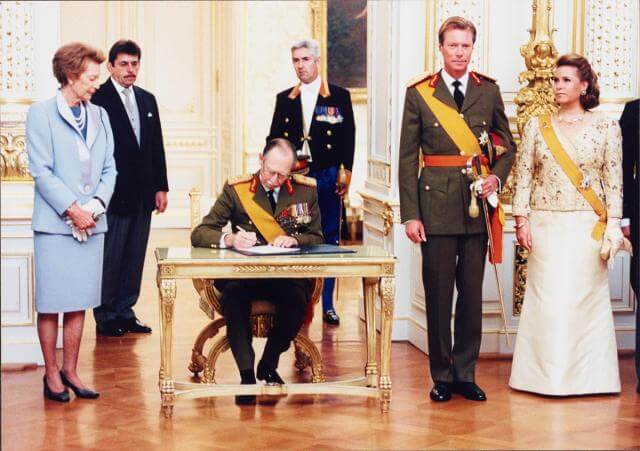


Why is the Grand Duke called ‘Guillaume V’?
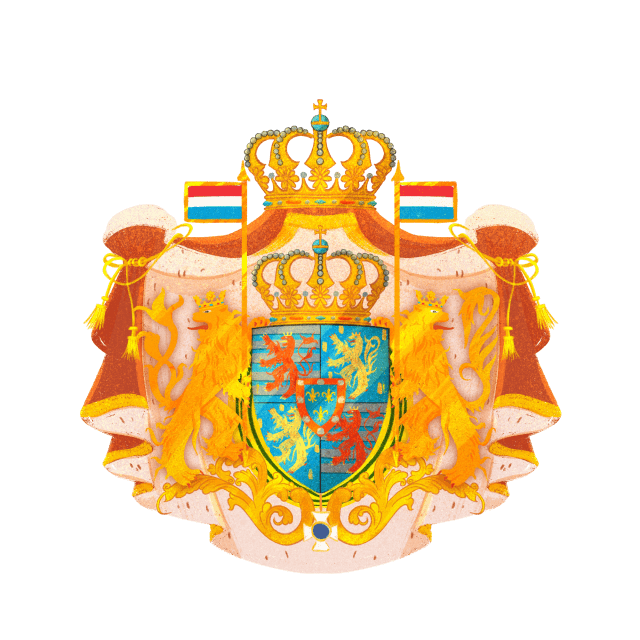
Did you know?
In the history of the Grand Duchy, four sovereigns have been named ‘Guillaume’. The Grand Duke's choice is therefore no coincidence! By calling himself ‘Guillaume V’, the new Grand Duke is continuing the history of the Luxembourg dynasty and honouring its traditions.







The ’Maison du Grand-Duc’ Administration
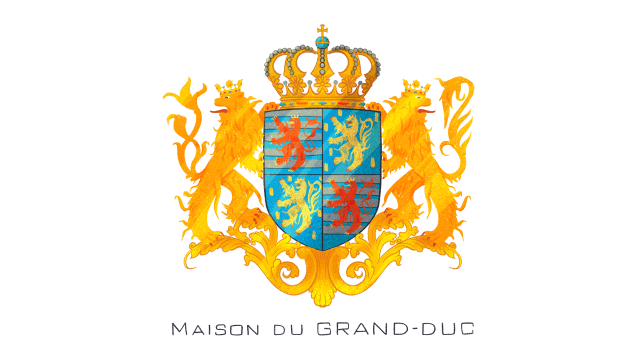
The Grand Duke is surrounded by numerous colleagues who help him to organise his duties as Head of State. They work for the Maison du Grand-Duc (the 'House of the Grand Duke'), a term that is applied to all the people working in his service, whether to advise him, inform him, prepare his trips, drive his car, take care of the Palace and its treasures… It is an administration and is dependent on the State.
The Marshal of the Court oversees the Maison. The Grand Duke's Advisor keeps the Grand Duke informed of political, economic and social developments, as well as major national and international issues. Many other professions are at the service of the Grand Duke and Grand Duchess: aides de camp, cooks, valets, technicians, people who look after the Palaces and gardens, archivists, media specialists, etc. We're going to take a look at some of these professions in more detail.

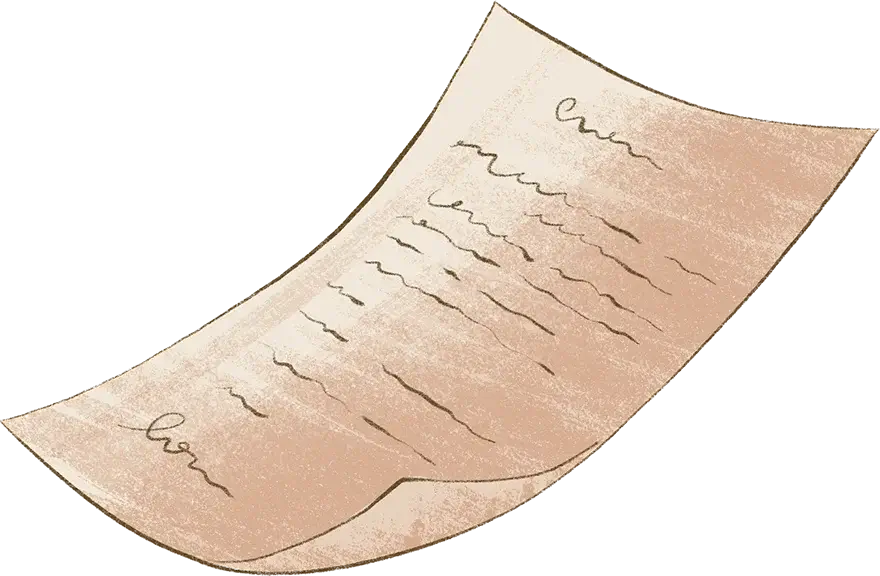





Spotlight on…


A word about the Grand Ducal Palace
The Grand Ducal Palace is located in the heart of Luxembourg City, on Place du Marché-aux-Herbes. This former Town Hall became the official residence of the Grand Dukes in 1890. Today, the Palace is the workplace of the Grand Duke and Grand Duchess and their advisors, who meet in the 'Maison du Grand-Duc".
Would you like to visit it and discover the treasures inside? The Palace is open in summer and guided tours are organised by the Luxembourg City Tourist Office. It's a chance to take a look behind the scenes, including the Ministers' Office, the Map Room, the Dining Room and the Kings' Salon, to name but a few.
You can see the balcony from the outside. It bears the coat of arms of the Grand Ducal family. On important and joyous occasions, such as weddings, it is traditional for our sovereigns to appear on the balcony to greet the citizens.










Spotlight on…


